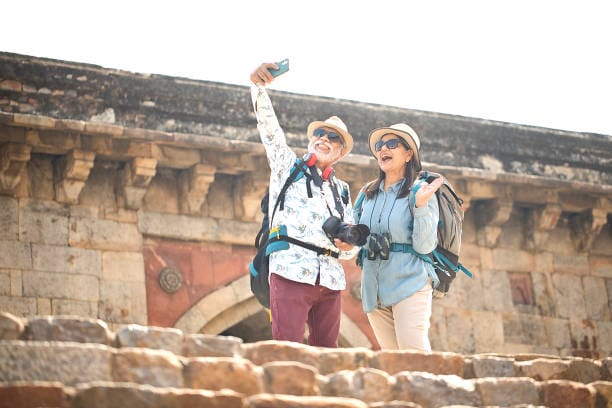Time to Target the Senior Tourism Market
- 24th November 2023
- Google Business Profile
Let’s sneak peek into some core statistics. According to the World Tourism Organization, in 1999, over 593 million international travellers were 60 years and older. This figure accounted for around 1/3 of holiday spending. Now this number is projected to reach 2 billion trips annually by 2050. And that’s purely because seniors will comprise nearly a quarter of the world’s population by 2050, compared to only 10% in 2000. From this, we can conclude, that seniors will be responsible for more holiday spending in the future than all of the younger age groups combined.
So, it’s important on the part of Hoteliers to make their property senior citizen-friendly as Hotel experience plays a crucial role in a senior’s overall travel experience. In comparison to younger travellers, Seniors have different needs and preferences. Hence, their hotel experience should cater to their unique requirements. The most common travel-related concerns that seniors have raised include physical limitations, mobility issues, security, comfort, and health concerns.
Hoteliers can take multiple steps to make hotels more accommodating for seniors:
Accessibility
In order to ensure that seniors with mobility issues can access the hotel easily Hotels should ensure that the hotel has wheelchair ramps. Lifts and Elevators should be installed in the hotel to make it easier for seniors to move between floors. Doorways in the hotel should be wide enough to accommodate wheelchairs. Parking spots near the entrance of the hotel should be accessible so that seniors can park close to the hotel entrance. Handrails should be installed by Hoteliers Hotels to make sure that seniors with mobility issues can move around the hotel safely.
Rooms need to be accessible
Non-slip mats in the bathroom, Low beds, wheelchair-accessible showers, etc are some of the features Hotels need to implement to make it easier for seniors. If the hotel has no elevator, there must be a provision in which seniors can get guaranteed ground-floor rooms.
Security Measures:
Security measures like surveillance cameras and security guards are not negotiable to make seniors feel safer while staying at the hotel.
Handling Emergencies:
Senior Travellers should be furnished with important information like emergency contact information of hotel staff, local emergency services, and nearby hospitals. Hoteliers need to ensure that staff members are trained in emergency response procedures, including first aid and CPR. Emergency alarms should be installed in the room and washrooms which can be activated in case of an emergency.
Adequate lighting in the room
Seniors usually have vision problems. So, good lighting is essential for seniors. Hoteliers must ensure that there is enough lighting in the room to allow seniors to move around safely and easily. There should be bright illumination, in areas such as the bathroom and bedside. Additional lighting sources, such as reading lamps, should be provided so that seniors can read or perform other tasks comfortably.
Healthy Food:
Low-sodium, low-fat, low-oil and gluten-free food options must be included in the Menu, to accommodate seniors with specific dietary requirements.
Additional amenities:
Additional amenities and services, such as tea makers, extra pillows, blankets, or room service, should be in place to ensure seniors’ comfort while staying at the hotel. Hoteliers can also provide guests with emergency kits containing items such as flashlights, and first aid supplies.
Final Thoughts
The senior tourism market is often overlooked. As the aging population grows, they’ll be the top travel spenders in the future. Hence, to make the most of it Hoteliers should pay attention to this.
The calm, comfort, and accessibility of hotels constitute the variables that may influence the choice of senior citizen travelers.
